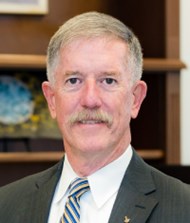Can Critical Thinking Survive in the 21st Century? Climate, Science, and the Energy Transition?
Division of Environmental Geosciences (DEG) and Energy Minerals Division (EMD)
Wednesday, 29 September 2021, 11:30 a.m.–1:00 p.m. | Denver, ColoradoHyatt Regency, Capitol Ballroom 5-6
There are hundreds, if not thousands, of portals through which science documents may be disseminated today. With this embarrassment of riches in publication options, there has also been a tremendous increase in the number of journalistic entities commenting on or reporting from these sources. How does one critically evaluate what is a quality report and what isn’t? Critical review of findings of other scientists has been the cornerstone of the classical scientific method but now with the explosion in quantity (but not always quality) this peer review function is becoming smothered by the flood. For the lay person, what can they believe? To make matters worse, there has been a creeping influx of political coloring of the scientific literature further fogging the lenses of quality and neutrality. A popular catchphrase has been “follow the science” but who’s science and to where?
Now more than ever we need to restore a strong facility for critical thinking in our science population. Science demands an open data environment so that findings published may be findings tested by other scientists.
As we continue to transition to an energy future that will be significantly different than what has been traditional, a well-honed ability to apply critical thinking skills against various claims and positions will be ever more important. Our public stakeholders need those skills but more important our science professionals and policymakers our stakeholders look to as their advisors need to demand critical review of the science. To do otherwise risks poor outcomes in our society and economy if we “follow the wrong science”.
As the former 17th Director of the USGS, Jim Reilly was responsible for leading the Nation's largest water, Earth, and biological science, and civilian mapping agency. Prior to joining the USGS, Dr. Reilly served U.S. and allied militaries as a subject matter expert on space operations, and as a technical advisor supporting the National Security Space Institute of the U.S. Air Force. He served with the U.S. Navy as a Reserve Engineering Duty Officer. He’s held management positions in academia, as well as at TAEUS Corporation, and PhotoStencil Corporation, in Colorado Springs, Colorado. As an astronaut at NASA, he had a distinguished 13-year career where he flew 3 spaceflight missions and conducted 5 spacewalks totaling more than 856 hours in space. Prior to NASA, he served as chief geologist at Enserch Exploration, Inc., working on projects around the world. He has been active in geological research in Antarctica and on the continental slope of the Gulf of Mexico. Dr. Reilly received a bachelor’s, masters and doctorate degrees in geosciences from the University of Texas at Dallas.
 James F. (Jim) Reilly
James F. (Jim) Reilly
Former Director of the USGS
Fees
- Fee:
- $65
Venue

Hyatt Regency Convention Center
650 15th Street
Denver,
Colorado
80202
United States
+1 303 436-1234